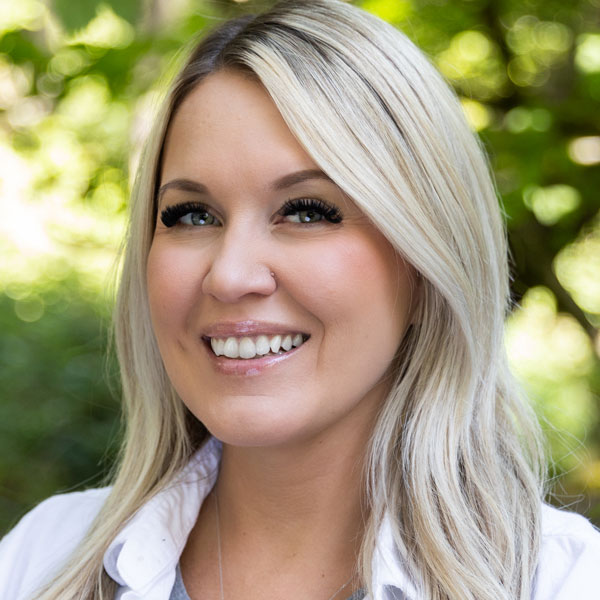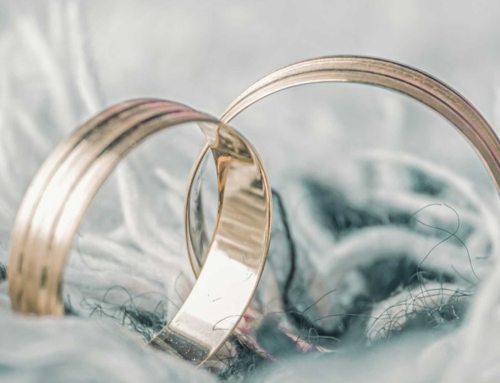No one likes rejection, and no one enjoys experiencing the feeling of loss. A breakup, whether you initiated it or it just landed in your lap, is not a pleasant thing to endure or put someone else through. When a relationship ends, that reality happens for any number of reasons, and it will affect the parties involved in different ways. How one responds to a breakup matters, as it can be healthy or unhealthy, and it can affect one’s well-being.
Romantic relationships come in various types, and each relationship will have its own story of struggles and triumphs. Some relationships are committed and have lasted for many years, while others are a few weeks or months old. The length of a relationship’s existence doesn’t dictate how its loss affects someone, as a relationship may be short but intense, while another may be lengthy but somewhat uncommitted.
How then does someone begin to deal with a breakup? It’s important to understand what a breakup implies or doesn’t imply about you or the relationship.
What a Breakup Means and Does Not Mean
 When a relationship ends, there is a swirl of emotions and thoughts that it unleashes. Some of these can aid in recalling what the relationship was really like, and what the person you were in love with was like. Other powerful emotions can distort reality, and that can influence how you process the breakup and make sense of yourself and your life going forward. Making sense of these thoughts and emotions can help as part of making your peace with the breakup.
When a relationship ends, there is a swirl of emotions and thoughts that it unleashes. Some of these can aid in recalling what the relationship was really like, and what the person you were in love with was like. Other powerful emotions can distort reality, and that can influence how you process the breakup and make sense of yourself and your life going forward. Making sense of these thoughts and emotions can help as part of making your peace with the breakup.
There are several things that a breakup means, and a few other things that it doesn’t. A breakup can imply some of the following:
- The relationship, in its current form, has ended.
- You and your partner could not find a way past a certain point or issue.
- You and your partner may not be the right people for each other.
- You have lost a part of your life and will likely need to grieve that loss and find healing.
At the same time, while your feelings and thoughts may prompt you in a certain direction, a breakup does not imply that you are unlovable, that you are a bad partner, that you are a failure, or that you won’t find love again. Yes, a breakup signals that there were likely unresolved issues in the relationship, but it doesn’t necessarily mean that the problem is with you.
Being able to parse what a breakup means and doesn’t mean is important because if you begin to entertain distorted thoughts about yourself, the relationship, or your partner, that can be followed up with unhelpful or unhealthy ways of coping with that loss.
Make no mistake – a breakup is a form of loss, and emotions that typically accompany grief, such as anger, denial, sadness, and so on will be present, influencing you and affecting your judgment and daily functioning.
Some Unhelpful Ways to Get Over a Breakup
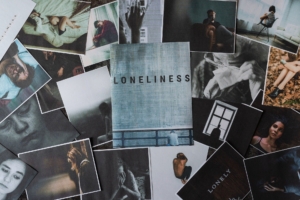 A breakup means losing an important part of your life. This person may have been your best friend, your closest confidant, and the person with whom you were making significant life plans. Losing that person means losing part of yourself, and that loss affects people in different ways. Just as people can handle losses such as divorce or the death of a loved one in unhelpful and unhealthy ways, a breakup can also be dealt with in an unhelpful way.
A breakup means losing an important part of your life. This person may have been your best friend, your closest confidant, and the person with whom you were making significant life plans. Losing that person means losing part of yourself, and that loss affects people in different ways. Just as people can handle losses such as divorce or the death of a loved one in unhelpful and unhealthy ways, a breakup can also be dealt with in an unhelpful way.
Some of the unhelpful and unhealthy ways of dealing with a breakup include the following:
- Poring over their social media.
- Keeping their number and texting or messaging them all the time.
- Turning to substance abuse, shopping, television, or food to numb or soothe your feelings.
- Not dealing with the feelings of hurt, sadness, regret, or longing that you may be feeling.
- Going back to them, particularly if there were good reasons for breaking up, and the concerns haven’t been addressed.
- Wallowing in your emotions about the other person.
- Turning to gossip and slander, or even damaging their property as a form of revenge.
- Making big changes, like a new radical hairstyle, getting a tattoo, or quitting your job.
- Rushing back into the dating scene.
Helpful and Healthy Ways to Get Over a Breakup
Getting over a breakup can be hard work, especially if you’re doing the hard work of dealing with your emotions and finding healing. Some of the healthy ways of dealing with a breakup include:
Journaling to explore your positive thoughts and feelings about your former relationship. This prevents resentment or sadness from eating you up inside and helps you to move on much easier. Don’t allow yourself to get caught up in the what-ifs, or dwell on the mistakes made during the relationship. Yes, one should learn from their mistakes, but the point of journaling is to identify where you’re at, not to rehash what went wrong or try to rewrite the past.
Connect with others
Instead of hiding away, make social connections with loved ones a priority. Meet up with friends and family and make the time to enjoy your non-romantic relationships. If you have ghosted some friends during your relationship, have a meaningful apology ready as you reconnect with them.
Explore your feelings
Don’t pretend you’re not feeling anything, and don’t bottle your emotions up. Feel your feelings, and deal with them now rather than suppressing them only for them to resurface later in unexpected and unpleasant ways.
Rebuild your future
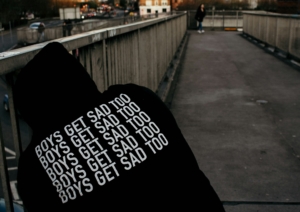 When you’re in a relationship with someone, you likely start to imagine a future with them. A breakup puts an end to all that. Part of moving forward is to start planning for your future without them and to set goals that aren’t tied to them. Part of rebuilding your future is to take time to rediscover yourself and get to know who you are apart from your former partner.
When you’re in a relationship with someone, you likely start to imagine a future with them. A breakup puts an end to all that. Part of moving forward is to start planning for your future without them and to set goals that aren’t tied to them. Part of rebuilding your future is to take time to rediscover yourself and get to know who you are apart from your former partner.
The loss and confusion that often follow on the heels of a breakup are because your life gets enmeshed with that of the other person, and your identity can become delineated according to the role of a partner and the relationship itself.
Take the time to recall who you are apart from the relationship and take the time to reacquaint yourself with your likes and dislikes that you may have had to mute as part of the compromising and give-and-take that all healthy relationships require.
Make self–care a priority
Having a regular exercise routine is great for your overall health, as it helps you lower the risk of conditions such as type 2 diabetes, heart disease, and chronic stress. Exercise boosts your mood because it releases endorphins and serotonin into your body, neurochemicals that make you feel good.
It also reduces the levels of cortisol in your body; cortisol is the stress hormone. Self-care also includes grooming, eating a healthy and balanced diet, drinking plenty of water, and getting good sleep every night.
Acknowledge your mistakes and identify what you’ve learned
We can learn from success, but we can learn just as much if not more from our mistakes. Take the time to consider what you learned about yourself and how you behave in relationships. What you learn in this season can help you better understand what you’d want in a future relationship, and what you can do differently in another relationship.
Forgive
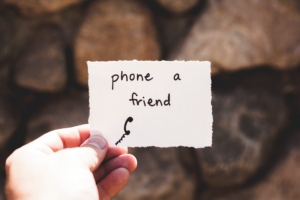 It can be easy to allow feelings of resentment to seep into your bones and to poison what you think about the other person, and relationships in general. Extending compassion toward yourself, and forgiveness toward the other person can help you find peace and a sense of closure. Forgiveness doesn’t happen overnight, and it is an act of the will more than it is of the heart. It releases you from ill feelings toward the other person.
It can be easy to allow feelings of resentment to seep into your bones and to poison what you think about the other person, and relationships in general. Extending compassion toward yourself, and forgiveness toward the other person can help you find peace and a sense of closure. Forgiveness doesn’t happen overnight, and it is an act of the will more than it is of the heart. It releases you from ill feelings toward the other person.
Seek help
Some breakups are particularly painful, or they bring up unresolved past issues that need to be addressed. Reach out to a professional counselor so that they can help you explore your emotions, thoughts, and behaviors that might undermine healthy relationships. Your counselor can help you cultivate healthy practices that develop good self-regard, help you create meaningful boundaries, and help you communicate and resolve conflict well.
“Comfort”, Courtesy of Priscilla Du Preez, Unsplash.com, CC0 License; “Loneliness”, Courtesy of micheile henderson, Unsplash.com, CC0 License; “Boys Get Sad Too”, Courtesy of Nathan McDine, Unsplash.com, CC0 License; “Phone a Friend”, Courtesy of Dustin Belt, Unsplash.com, CC0 License


